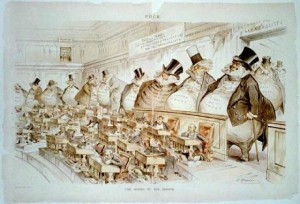He calls it the “Cancer of American Journalism”
May 7, 2013
Watch the full 20-minute interview with Robert Fisk on Democracy Now! at http://owl.li/kN9jD. Longtime Middle East correspondent of the British newspaper The Independent, Robert Fisk, tells Democracy Now! that journalists covering Syria and other conflicts are too often relying on anonymous government sources for their stories.
ROBERT FISK: Oddly enough, you have to be in Syria to realize how mad it is. There's an odd thing that when you actually are traveling around Syria — Latakia, Tartus, Damascus and further north than Latakia — and you listen to the news coming out of Washington, it's like Americans are living in this kind of fantasy world that bears no relation to planet earth, where I'm trying to report. And this is getting steadily worse.
And I think one of the problems is, as I say, this parasitic, osmotic relationship between journalists and power, our ever-growing ability, our wish, to — you know, to rely on these utterly bankrupt comments from various unnamed, anonymous intelligence sources. And I'm just looking at a copy of the Toronto Globe and Mail, February 1st, 2013. It's a story about al-Qaeda in Algeria. And what is the sourcing? “U.S. intelligence officials said, “a senior U.S. intelligence official said,” “U.S. officials said,” “the intelligence official said,” “Algerian officials say,” “national security sources considered,” “European security sources said,” “the U.S. official said,” “the officials acknowledged.” I went—boy, I've got another even worse example here from The Boston Globe and Mail sic, November 2nd, 2012. But, you know, we might as well name our newspapers “Officials Say.” This is the cancer at the bottom of modern journalism, that we do not challenge power anymore. Why are Americans tolerating these garbage stories with no real sourcing except for very dodgy characters indeed, who won't give their names?
Continue reading “Berto Jongman: Robert Fisk: We Might As Well Name Our Newspapers ‘Officials Say'”






